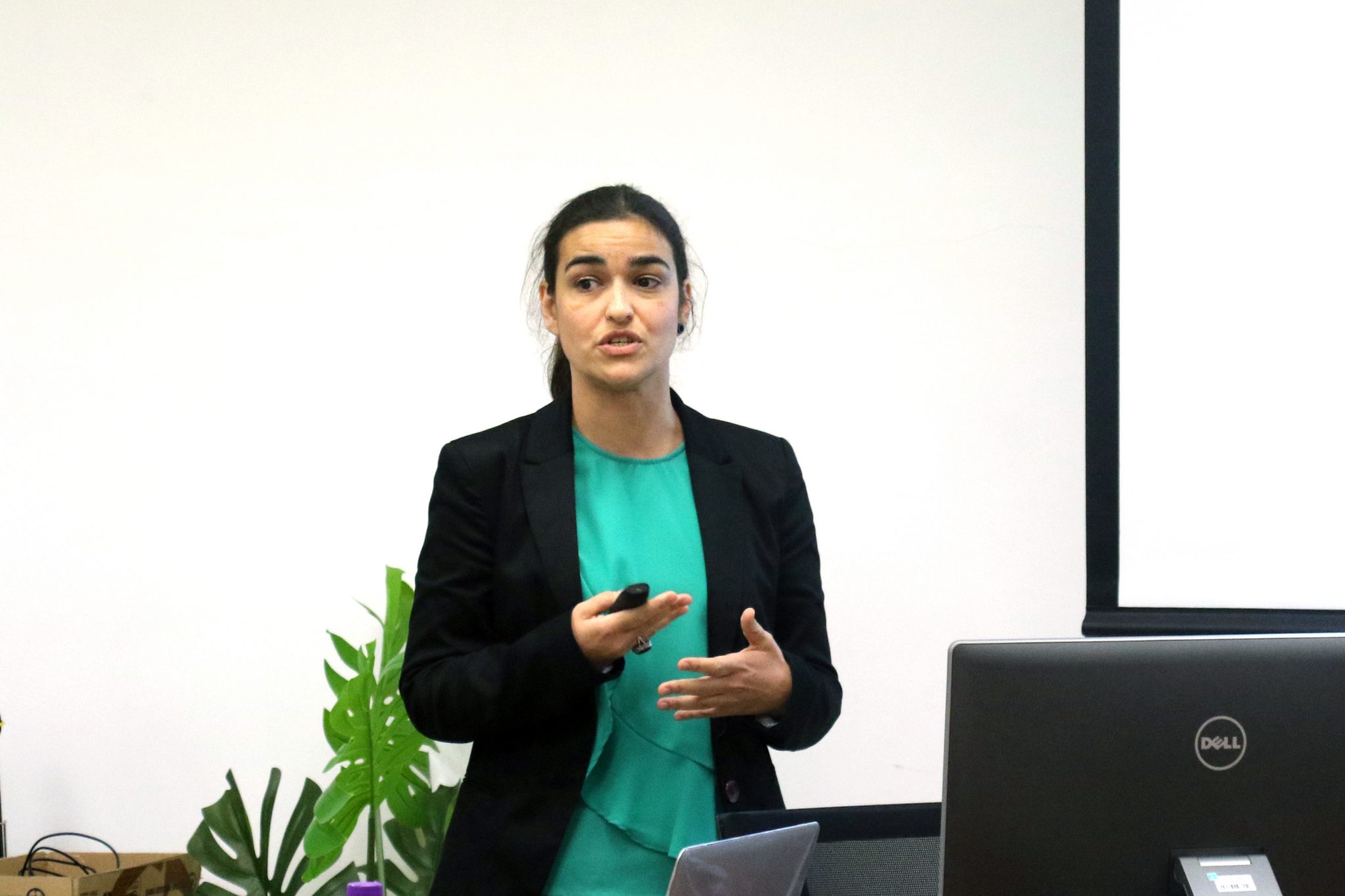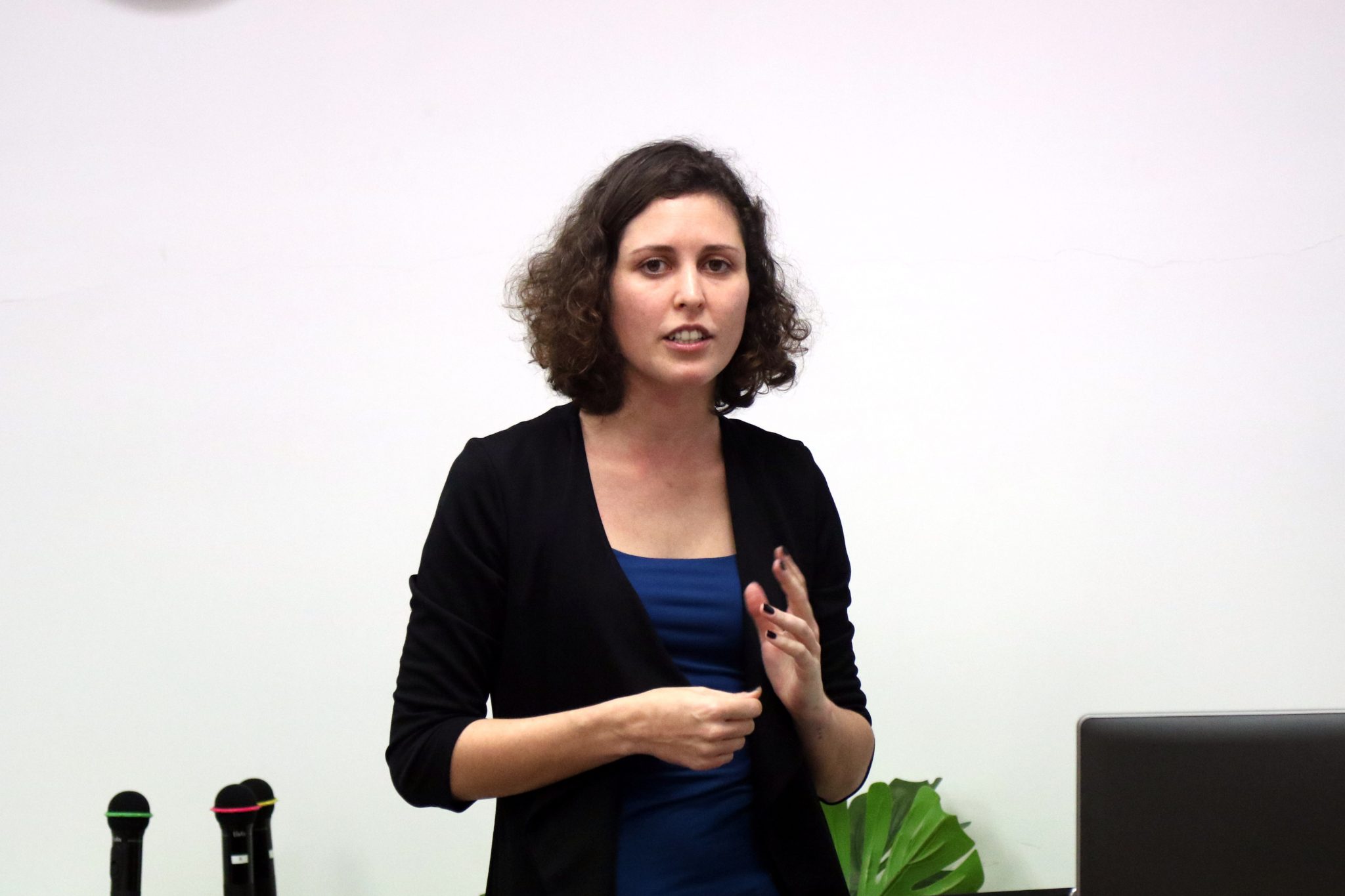The last FAH Bentobox session of the 2018-2019 academic year was held in our Faculty on the 18th April. This session attracted over 15 participants who brought many interesting questions and contributed to fruitful discussions. This time we had Dr. Joana Marques (Portuguese) and Ms. Veronica Valle (Philosophy and Religious Programme) as speakers.
Dr Marques discussed and analyzed the praxeology of informal educational practices in an astronomical observatory through close analysis of a guided tour. As Dr. Marques explained, it may be assumed that tours are structured interactions, having a stable format in which participants follow predetermined actions. However, recordings of guided tours show that such ‘structured’ formats are flexible, as well as highly interactive. Dr. Marques showed how ‘tours-in-practice’ are accomplished by participants (guides and students) with different levels of astronomical expertise, and how guided tours happen through participants’ natural language practices. Dr. Marques explained that records of naturally occurring interactions allow us to explore issues associated with the sequentiality and categorial organization of talk; more generally, such records are useful resources for furthering our understanding of the knowledge-context interaction in settings outside the traditional classroom environment. Dr. Marques discussed the data from a video recording of a guided tour in an Astronomical Observatory in Portugal: some practices used by the participants were pointed out and analyzed, and the interactional nature of this event was highlighted.
Ms. Valle explored the problem of the nature of perception through the discussion of the most extreme instance of perceptual error, that is, hallucination. In particular, her discussion focused on a specific phenomenological feature of experience: the sense of presence. She explained that although it is characteristic of perceptual experiences that they present their content as actual, this sometimes happens in cases of hallucination as well. She presented the two traditional ways in which sense of presence has been accounted for: i) sense of presence is dependent upon the content of experience (i.e., what the experience is about); ii) sense of presence is a belief endorsing such content. By recourse to qualitative data on two types of hallucinations (Charles Bonnet Syndrome hallucinations and auditory verbal hallucinations typical of schizophrenia), she argued that the two traditional accounts fail to predict anomalous emergences of sense of presence. Ms. Valle went on and provided an alternative account, according to which sense of presence is a cognitive attitude, and the difference between perceptual experiences and sensory imagination might be understood not in terms of what the experience represents, but of how such content is entertained. Ms. Valle concluded by pointing out that if sense of presence is a defining feature of typical perceptual experiences, the possessing of sense of presence might be a relevant way in which an experience is perception-like.
This was the last Bentobox of the academic year of 2018-2019. We would like to thank all FAH colleagues for their contribution and participation throughout this period. We also want to express our best wishes to our next Bentobox coordinators, Profs. Jeremy de Chavez and Sun Yuqi, who will be working with Ms. Lisa Lam to make of Bentobox a continuous fruitful space for sharing ideas and fostering collegiality in our Faculty.
Looking forward to seeing next academic year!




